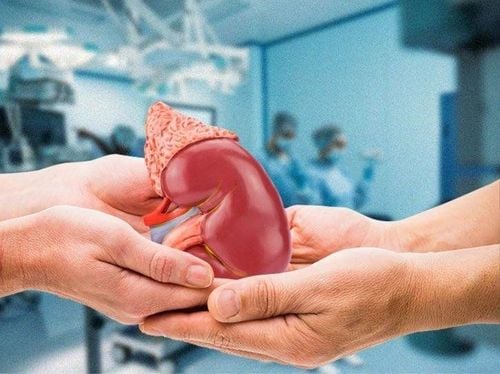Pregnant women often experience frequent urination, especially at night. This leads many expectant mothers to hold their urine or avoid urinating. However, holding urine can have significant adverse effects on the health of both the mother and the fetus.
1. Reasons Why Pregnant Women Urinate Frequently
During pregnancy, a woman's body undergoes numerous physiological changes, leading to changes in daily habits, including increased urination. Some specific reasons why pregnant women urinate more frequently during pregnancy include:
- Pressure from the growing fetus on the bladder: A normal bladder can hold 400-500ml of urine. However, during pregnancy, the growing uterus puts pressure on the bladder, reducing its capacity and increasing the frequency of urination. If a pregnant woman holds her urine, the resulting bladder distention can cause abdominal pain.
- Hormonal changes: Increased hormone production during pregnancy, particularly high levels of hCG, is a cause of frequent urination. hCG increases blood flow to the uterus and pelvic area, which puts pressure on the bladder and increases the urge to urinate.
- Increased kidney excretion: During pregnancy, a woman's blood volume increases by about 50% compared to her normal state. This increases kidney activity, leading to more frequent urination.
- Urinary tract or bladder infections: Urinary tract or bladder infections are common in pregnant women. If left untreated, these infections can cause serious complications for both mother and baby, including frequent urination, painful urination, blood in the urine, urinary dribbling, and, in severe cases, preterm birth or miscarriage.
- Gestational diabetes: If not properly managed, gestational diabetes can increase the risk of urinary tract infections, which is another reason for frequent urination during pregnancy.

2. Harms of Holding Urine During Pregnancy
The increased frequency of urination during pregnancy can lead some expectant mothers to hold their urine or prolong the time between bathroom breaks. This raises concerns about the effects of holding urine on the fetus. Regularly holding urine during pregnancy can lead to the following dangerous complications:
- Urinary Tract Infections (UTIs): Urine plays a vital role in eliminating bacteria that enter the urinary tract. When a pregnant woman holds her urine, bacteria from the anus and vagina can travel through the urethra to the bladder and cause a UTI.
- Preterm Birth: This is one of the potential consequences of holding urine. The symptoms of cystitis (bladder inflammation) can irritate the cervix, causing contractions and increasing the risk of preterm birth. Additionally, UTIs themselves can also trigger contractions.
- Fetal Distress: Holding urine causes the bladder to expand due to increased urine volume, which can put pressure on the uterus. This pressure can affect fetal breathing, and nutrition, and lead to fetal growth restriction.
- Other Complications: Holding urine can lead to the formation of urinary tract stones. Furthermore, frequently holding urine can disrupt natural reflexes, leading to urinary symptoms like burning sensations, dribbling, or urinary retention.
3. Preventive measures to avoid the harmful effects of holding urine during pregnancy
Understanding the potential harms of holding urine can help pregnant women take effective preventive measures. Some steps they can take include:
- Do not hold urine and urinate as soon as the urge arises.
- Limit fluid intake before bedtime: While frequent urination can be inconvenient for pregnant women, they still need to drink enough water for their health and the baby's healthy development. Their daily water intake should remain consistent. They can drink more water during the day and reduce fluid intake before bed to avoid frequent nighttime urination, which can lead to sleep disturbance.
- Limit consumption of diuretic beverages: Drinks like cola, soda, and coffee have diuretic properties, so pregnant women should limit their intake to avoid frequent urination.
- Urinate before going to bed: This helps pregnant women reduce nighttime urination. The path from the bed to the restroom should be safe, and free from obstacles, and the light switch should be conveniently located to ensure safety during trips to the restroom.

In summary, during pregnancy, expectant mothers often experience frequent urination due to physiological changes. Holding urine can significantly impact the health of both the mother and the fetus. Therefore, when the urge arises, pregnant women should urinate immediately and limit their consumption of diuretic beverages throughout the day. If a pregnant woman experiences frequent urination accompanied by blood in the urine, burning sensations, itching, etc., this could be a sign of a urinary tract infection and requires immediate medical attention.
Please dial HOTLINE for more information or register for an appointment HERE. Download MyVinmec app to make appointments faster and to manage your bookings easily.













